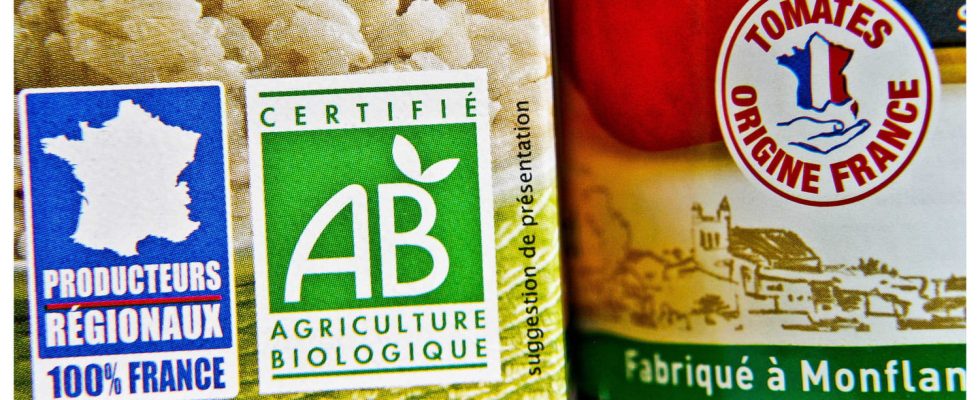Despite the French flags on the packaging, many products try to hide the origin of their ingredients.
For several years, consumers have tried to be more vigilant about the origin of the food products they consume and have asked for more traceability. A first step was taken in this direction in 2017, with the introduction of the “Nutri Score”, this rating tool which makes it possible to measure the quality of the nutritional intake of food products. However, French law is still very vague regarding the obligation of transparency on the origin of products.
In October 2021, the Egalim law was adopted and article 12 stipulates that “Including a French flag, a map of France or any other symbol representative of France on food packaging” is prohibited when the “primary ingredients […] are not of French origin”. Violating this law is in theory punishable by two years in prison and a fine of 300,000 euros. However, the decree which was to provide details on the prohibitions and its exceptions was never promulgated, making the application of this law impossible.
In one article, Mediapart presents three examples of products benefiting from this lack of regulation. Tagliatelle from the Lustucru Sélection brand is one of them. They are presented on the packaging as “made in France”, however, it is clearly indicated, on the side and in very small font: “Wheat semolina of EU origin, eggs of EU origin”. In fact, the pasta itself is in fact molded in a French factory, but the ingredients come from elsewhere. Among the other examples cited by the media we find the cordon bleus of the Père Dodu brand.
Although the packaging indicates “prepared in France”, the three small subscript points refer to the words “chicken and turkey meat of EU origin”. Contacted by Mediapart, the Père Dodu brand specified that 40% of the meat it uses is imported. The same goes for organic Chocapic cereals from the Nestlé group. Despite the tricolor flag and the map of France, the media indicates that part of the wheat making up the cereals is imported. Mediapart questioned the three brands and each indicated that this display complies with European regulations on labeling and consumer information. Even if the mention is written in small print.
On February 23, 2024, the Ministry of the Economy communicated the first results of an investigation carried out by the Directorate for the Repression of Fraud (DGCCRF) which carried out checks on the indication of “French origin” in 1000 supermarkets. In the end, 372 offenses were identified and 70 of them could correspond to “deceptive commercial practices”. At the same time, the Minister for Consumer Affairs, Olivia Grégoire, recently announced the start of the development of the “Origin Score”. Designed on the “Nutri Score” model, this indicator will aim to provide information on the origin of food products, by highlighting products of 100% French origin. Initially this tool would be available to voluntary brands. The minister is expected to bring together the players in this project in Bercy in mid-March.
